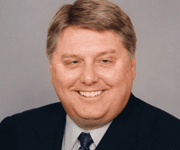HEALTH care systems around the world, and the general practice foundation on which they depend, face a number of challenges in the next several years.
Rising expectations, the increasing burden of chronic and co-morbid conditions, and looming workforce shortages portend a growing mismatch between what people want and what they are likely to get when it comes to health services.
Patients, professionals, and policymakers have rising expectations about health care.
Patients are perceived to want ready access to the full array of medical technology. The response has been to set up 24-hour urgent care facilities, nurse practitioner centres, and imaging and laboratory services seemingly on every street corner.
These responses in turn generate ever more service utilisation until harm befalls over-investigated and over-treated patients and systems become insolvent.
Doing more is not necessarily doing better.
My 30 years as a family doctor have taught me that what most people really want is a timely answer to current health care concerns from someone they know and trust, and who knows them.
Given that 70%–80% of symptoms in a general population are self-limiting, a principal task of high performing health systems is to resist the temptation to turn every emotional downturn into major depressive disorder or every headache into a brain tumour.
Sorting that out is quite complex and requires more than a substantial knowledge of diagnostics and therapeutics ― it involves cultivating an ongoing relationship with those under our care.
That is what family doctors do.
Professionals also have rising expectations. We want comfortable hours and working conditions, considerable pay, and consistent respect.
Yet, we risk these if we are seen as putting our needs above those of our patients.
Policymakers struggle with health care. They careen from one management fad to another; one moment deriding professionals as causing health system woes and, next, pleading for us to fix the system broken by their ever-changing policies.
The global epidemic of obesity means that chronic ailments, such as cardiovascular disease, diabetes and cancer, have become the leading cause of mortality, even in developing countries.
Those with a calorie surfeit and relative physical inactivity are not likely to be cured by a pill. They need ongoing professional support from someone they trust.
With a third of family doctors around the world over 50 years of age and a growing proportion of young doctors choosing part-time practice, who will provide the care?
There is a global trend towards more robust primary care teams, what some call “advanced primary care”.
While this trend promises much, primary care teams that are too large or disjointed can replicate the same dangerous fragmentation posed by the larger health system.
Our greatest challenge ― and opportunity ― will be to use emerging technologies (eg, email, texting, web-based information, point-of-care testing) and strategies (eg, advanced primary care teams) to enable us to be even better connected to our patients and to leverage the therapeutic relationship to the benefit of patient and system alike.
Professor Richard Roberts is the president of the World Organization of Family Doctors (Wonca) and professor of family medicine at the University of Wisconsin School of Medicine and Public Health, USA.
Posted 14 February 2011

 more_vert
more_vert
Professor Roberts decries on one hand the opening of clinics to allow 24-hour access to a professional, and then advanced primary care to allow the lifestyle results of our society to be ‘treated’.
When a small sunburn blister not only results in an emergency attendance at hospital – and innumerable similar non problems – demanding a doctor as well, it indicates only the communal acopia and need for professional rather than DIY responsibility.
Let us EDUCATE people to be a bit more self sufficient and confident in their own commonsense.
The next riddle – How many people does it take a light bulb – DON’T, you are not allowed – Call an electrician!